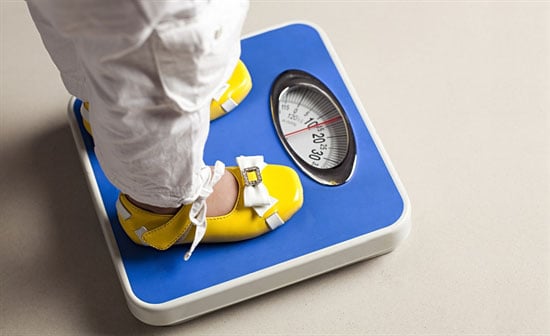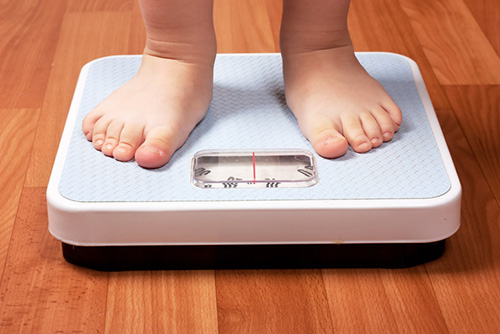It can be hard to see your child struggling with being overweight because as parents we want to do everything we can to help our children, especially when they are stressed. If you are worried about the effect of your child’s weight on your health and well-being
If you are concerned about your child weight, consider seeing a health professional, such as a doctor or pediatrician. They can offer additional advice on raising your child, including what services your child may need and benefit from.
Avoid blaming others
Young people gain weight for many uncontrollable reasons or as a result of individual behavior. This is often for complex reasons. Children with weight problems are often subject to stigma, stigmatization and bullying. It is important to stop blaming the children. Instead, try to identify structural problems that contribute to weight gain. Starting with the right attitude can really help your child.
Genetic interactions can affect a child’s weight for the rest of their life. Children’s experiences and environments Children eat, play and live in environments where physical activity is low and where cheap, readily available, energy-dense and healthy fats and sugars are consumed. The body’s natural reaction to a foreign environment. In addition, children can combat stress and boredom by eating junk food. Relax every now and then
Participate in the conversation without judgment.
It is important for children to know that you are there for them and that you can always listen to their worries and concerns without judging them.
Do not use critical or negative comments about another person’s body. Involve yourself This damages your child’s self-esteem and makes it difficult for him to open up to you.
It’s easy to start using the first person language when talking about being overweight or obese. Putting the person before the situation helps overweight and obese people.
Encourage open dialogue and encourage children to share their thoughts and feelings about body image. If your child makes negative comments about their weight, try to find out what’s behind it. Listen carefully and don’t ignore or belittle their concerns. Address the situation directly and act as quickly as possible.
Increase self-esteem and Compliment qualities other than weight, such as “I’m proud of you for studying hard for this test” or “I love how kind you are to your brother.”
Healthy discussion
In a rapidly changing digital environment, it is important to understand the risks to your child’s mental health and well-being. It’s about self-confidence and body image issues. This ranges from posts on social media showing overall weight or promoting eating disorders. Founds a company that produces unhealthy fast food products for the children’s market.
Allowing your child to discuss mental health carefully should encourage you to create a safe space for healthy discussion. How online behavior affects your well-being and self-image
Try these tips when talking about weight with your child:
- Ask your child open-ended questions (“How are you?”, “How was school?”) and encourage him to talk about his feelings.
- Thank your child for making him feel safe by trusting his feelings.
- Accept that maintaining a healthy diet and weight can be challenging. The health benefits are emphasized.
- Positive and cooperative
Focus on healthy behaviors
Focus on “health and wellness goals” rather than weight loss. Eating healthy and exercising doesn’t happen overnight without the advice of a medical professional. Sustainable change takes time, effort and patience on the part of you and your child. Sudden and drastic changes in your child’s diet and lifestyle can worsen and harm your child’s health. Changes are most effective when they are small, incremental and affect the whole family.
Be the best role model you can be. Choose healthy, nutritious foods like fresh fruits and vegetables. Promote exercise Promote good sleep and avoid negative comments about your weight or the weight of others.
Regardless of your weight, you can help your child thrive by maintaining a healthy lifestyle. Explore different food groups together and learn about essential nutrients that are part of a healthy diet. We also discuss why some foods are better than others.
Avoid processed foods and beverages high in salt, sugar, and fat, and cut out certain foods entirely. This is dangerous and increases appetite. Instead, offer healthy snacks like fruits, vegetables, and plain yogurt. Encourage them to make water their main drink instead of sweet fruit. Learn about food available at home
Have a nice meal together
Prepare as many meals as possible and eat together as a family. It’s time to discover and practice healthy eating habits. Serve toddler-sized food and ask for more if your child is still hungry. Setting meal and snack times also teaches your child that meal times are set. Instead, encourage them to burn throughout the day.
Enjoy the movement
Encourage sports and outdoor activities together as a family. From the age of 3, children should be active for at least 1 hour a day. However, for younger children, this can be broken down into short periods of 15-20 minutes. Try games like strategy or soccer. Older children participate in family outings and enjoy new sports together. If possible, walk or bike instead of driving or taking public transportation. In addition to building a network of friends, communities and schools support team sports that make physical activity more enjoyable.
Looks, not weight
Avoiding making weight the sole focus of the program by focusing on the benefits of healthy eating and active behavior for the whole family is an essential element of support. In addition to boosting your immune system and mental health, you can actually prevent your child from gaining weight and developing an eating disorder by making positive changes for your family.

He remembered
The best way to cooperate with your child’s happiness and health is to show them that you are there for them no matter what. Understand that it is difficult for them too. But eat healthy and exercise together as a family. You can encourage your child to make positive and healthy lifestyle changes. It is more than just weight loss











